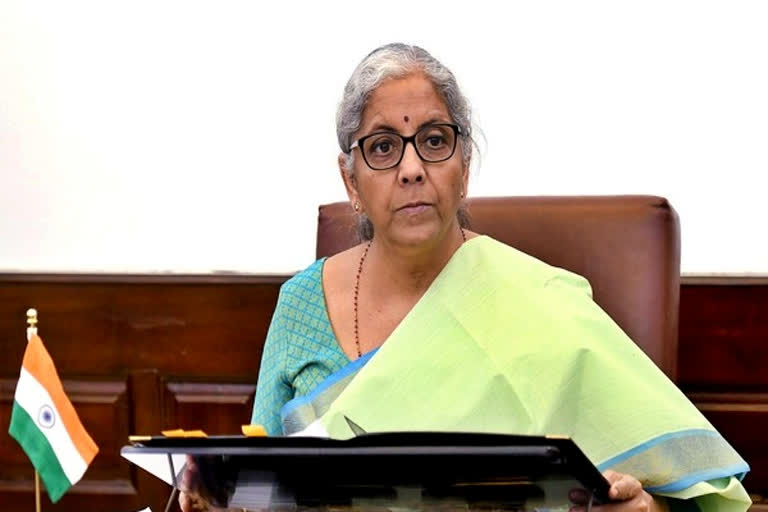New Delhi: It was never meant to be an easy decision but finally the Centre decided to bite the bullet. In a major decision that will have a ripple effect not only on the pocket of the middle class and lower-middle-class families but will also impact the government finances as well, the Finance Minister Nirmala Sitharaman Saturday evening announced a reduction of Rs 8 in excise duty on petrol and Rs 6 per litre on petrol.
In a series of tweets, the Finance Minister said that the decision will have a revenue implication of Rs 1 lakh crore for the government exchequer in the current financial year. The decision to reduce the excise duty has been announced more than three weeks after Prime Minister Narendra Modi’s public appeal to some opposition ruled states to cut down VAT and state taxes on petrol and diesel as they had not followed in the footsteps of NDA and some non-NDA ruled states that reduced their taxes following the Centre’s earlier duty cut announced in November last year.
Prime Minister Modi’s appeal to seven opposition ruled states such as Maharashtra, West Bengal, Tamil Nadu, Andhra Pradesh, Telangana, Kerala and Jharkhand was not accepted by the respective state governments as they refused to follow in the footsteps of the Centre and more than 21 other states that have cut their state taxes to give relief to the common man.
These states also criticized the Prime Minister for publicly airing his appeal to cut state taxes in a meeting that was called to discuss the Covid situation in the country with the chief ministers in the wake of the sudden spurt in Covid cases in countries such as China, South Korea, Japan, New Zealand and Australia.
This public blame game showed the inability of both the Centre and states to let go of any revenue that they could possibly earn from the sale of petrol and diesel which is outside the ambit of the common goods and service tax (GST) which was implemented in July 2017.
While the Centre levies a production tax, known as excise duty on the production of petrol and diesel, states levy their own sales tax or value-added tax (VAT) on the sale of petrol and diesel in their area. While the Centre earned Rs 3.74 crore lakh in excise duty from the petroleum sector in FY 2021-22, the states collectively earned Rs 2.17 lakh crore from the sector. But more than 40 per cent of the Centre’s collection is also transferred to states under the devolution formula recommended by the finance commission.
What compelled Centre to cut excise duty?
In such a situation, when the Centre was not willing to cut the excise duty the second time in six months' time, the run-away inflation forced the Centre’s hands to bite the bullet. The twin inflation, the wholesale price index (WPI) and the retail inflation measured as the consumer price index (CPI) are well beyond the government’s comfort zone.
While the wholesale inflation has been in double-digit for more than a year, the retail inflation touched an eight-year high in April this year. It forced the RBI to raise the benchmark inter-bank interest rate for lending money to banks, the repo rate, by 40 basis points while announcing other measures to suck liquidity in the system.
However, the Reserve Bank’s decision to raise the interest rate and to suck excessive liquidity from the system was not enough on its own to tame the persistently high inflation. The structurally high inflation eventually forced the Centre’s hand and it finally decided to bite the bullet by reducing the excise duty on petrol and diesel while also announcing a subsidy on domestic cooking gas to shield the poor from the adverse impact of high inflation.
Also read:Oil price politics: Deciphering tax on petrol in states that did not slash VAT



